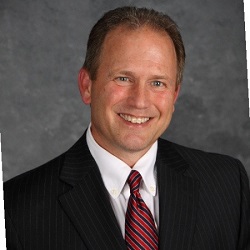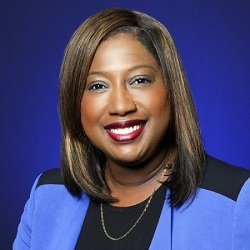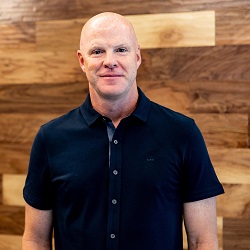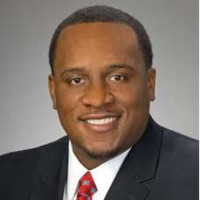When COVID-19 shut down commerce across the United States, local businesses in and around Millbury, MA, were counting on Millbury Federal Credit Union ($372.4M, Millbury,MA) to help them apply for forgivable loans through the U.S. Small Business Administration’s Paycheck Protection Program. But the credit union had a big problem. It couldn’t get into the SBA loan portal.

Joe Barbato, CEO, Millbury FCU
Millbury had lost online access due to inactivity. Calls and emails to the SBA went unanswered for a week. The local congressman, Rep. Jim McGovern, even intervened to get through to the overwhelmed SBA office in Washington.
Millbury finally received an email with a temporary PIN for the portal late Saturday night. But by the time the credit union saw the email, the PIN had already expired. Finally, after 10 agonizing days, the credit union gained access and began submittingapplications three days before the first round of $342 billion in PPP funding ran out on April 16.
It was a nightmare, says Joe Barbato, CEO of the credit union. When we finally got through to our regional SBA guy, he told us he had 6,000 emails he had to return that morning. They were just completely unprepared for this.
Since Congress passed the CARES Act on April 3, PPP has been steeped in controversy, from 200 publicly traded corporations receiving $100 million in loans to questions about why small community banks in rural states in the firstround managed to cover 81% of the state’s eligible payrolls more than double the number in hard-hit New York and California. Add to that a series of SBA loan portal crashes as thousands of lenders rushed to tap into the $310 billionin second-round funding available April 27.

Michael Dill, EVP and CLO, Royal Credit Union
Many feared PPP funding would run out again in less than a week; however, things are looking up for the popular PPP initiative. Dozens of high-profile companies such as Shake Shack and Ruth’s Chris Steakhouse gave back their loan money, and morethan $100 billion in PPP funds were still available as of last week. Further, the Treasury Department announced in early May that the majority of borrowers are no longer required to demonstrate need for loans less than $2 million. The SBA’stenth Interim Final Rule on May 15 finally addressed this question and others that had been nagging the program since the beginning.
We went into the program with no clarity and no guidance from the SBA, says Michael Dill, executive vice president and chief lending officer at Royal Credit Union($2.9B, Eau Claire, WI). It was like building an airplane while flying at Mach speed.
Within the first month, Royal closed approximately 1,000 loans more than all of the business loans it made in 2019. To date, the credit union has closed 1,143 loans totaling $49.2 million. The feedback has been very rewarding, Dillsays.
Lending Program Frustrations
At the outset, the first-come, first-served PPP process appeared to favor larger lenders. Bank of America, for example, announced May 4 that it had gained approvals on 265,500 loans totaling $24.9 billion.

Melva McKay-Bass, SVP Of Business Development, Suncoast Credit Union
According to Barbato at Millbury, the SBA sent a notice to lenders the day before the second round of funding was released telling them they could submit loan applications in batches of up to 15,000 to streamline the process. The next day, after the portalcrashed around lunch time, the SBA sent an urgent email advising lenders to limit the batches to 5,000 applications.
Millbury submitted approximately 100 loans for a total of $4 million.
Obviously, a credit union our size was not submitting batches of 15,000 loans, Barbato says. I don’t know for sure, but I suspect that’s what crashed the system.
To qualify for loan forgiveness, borrowers must spend 75% of the funding on payroll, while the remaining 25% can be spent on operating costs such as rent and utilities. However, many credit unions were frustrated by the lack of guidance on the loan requirementsand documentation needed for borrowers to demonstrate compliance and receive loan forgiveness.
We encountered many issues, says Melva McKay-Bass, senior vice president of business development at Suncoast Credit Union ($11.0B, Tampa, FL), which hasso far made more than 1,700 loans worth more than $47 million. The guidance was not clear. It seemed to change almost daily.

Todd Marksberry, President And CEO, Canvas Credit Union
Todd Marksberry, president and CEO of Canvas Credit Union ($2.8B, Lone Tree, CO), says a team of executives and legal counsel reviewed the 31-page preliminary guidelinesand had numerous questions for the SBA about how to advise borrowers on the risks. The credit union tried to reach the SBA during the first round but didn’t hear back until two days before the funding ran out.
Many of us in the industry were scratching our heads, Marksberry says. The major banks were making loans. How were they comfortable when they had the same guidance we had? Maybe their calls were being answered.
Even more frustrating, Canvas also couldn’t access to the SBA portal and finally received a new password on the Wednesday the first round ran out. The credit union immediately submitted applications, only to learn from the SBA that they were lostand would have to resubmit them. By that time, the money had run out.
It made you want to laugh or cry, Marksberry says.
The Canvas team was ready for the second round and managed to get 590 PPP loans approved for $15.8 million. The loans cover more than 1,980 employees at Colorado businesses.
Smaller Player Support
Kate Laud, CEO of Opportunities Credit Union ($43.3M, Winooski, VT), says the distribution of the loan funds is troubling. For example, Bloomberg reported that only 38% of PPP loans in the first round were approved in California, whereas 81% of the loans were approved in Nebraska. According to the report, Republican-led states in the Midwest appeared to fare betterthan Democrat-led states on the coasts.

Kate Laud, CEO, Opportunities Credit Union
We were really surprised that Vermont got 67%, Laud says. It’s almost as if they said let’s pick the smallest Blue State and give them a little extra. As far as population per state, I think we’re doing pretty wellfor the allocation we have.
Although the PPP loan process wasn’t perfect, she adds, the program itself is making a major impact. So far, the credit union has gotten 38 loans approved for $2.1 million.
People can be critical that this piece was missed, this piece was late, or not everybody got in the door in time, but it’s incredible that they got it out, Laud says. A really small player like our credit union was able to make27 of our business borrowers extremely happy and all within 10 days.
One of those small businesses, Vermont Comedy Club of Burlington, VT, closed on March 13 and had to lay off all 26 full-time and part-time employees. Natalie Miller, who runs the businesswith her husband Nathan, switched to online shows and classes paid for by donations to keep people laughing during these hard times. The PPP loan enabled the couple to rehire four employees to help plan new programs to generate revenue.
We are so incredibly lucky to work with a credit union because we have formed great relationships with the staff and get more personalized attention than we might at a bank, Miller says.
After the portal crashes in the first week of round two, the SBA changed its processes, giving smaller loans priority for approval. By May, the agency said it had made 2.2 million loans totaling more than $175 billion. The average loan amount of $79,000shows the program is assisting the smallest of small businesses.
Over 850,000 loans about one-third of the 2.2 million loans were made by lenders with $10 billion of assets or less, Steve Mnuchin, secretary of the Treasury, said in a statement.
Jumping Into The Game
Mike Poirier, vice president of consumer and commercial loans at Patelco Credit Union ($7.5B, Pleasanton, CA), says the credit union did not participate in round one ofPPP because its focus is on supporting individual members rather than businesses.

Mike Poirier, VP Of Consumer And Commercial Loans, Patelco Credit Union
However, we heard from our members that many who have businesses were unable to access the PPP loans in the first round, Poirier says. For this reason, Patelco decided to participate in the second round, focusing on our existing memberswith businesses that constituted 25 employees or less.
Patelco applied to become a certified SBA lender and received approval in less than a week. It also worked with a credit union service organization to set up appropriate procedures.
We began contacting members that had shown interest, Poirier says. We submitted our first applications on April 27 and received notification from SBA of approval the same day. We have had same-day responses on all of our applications.Our average loan amount is less than $15,000 due to our focus on smaller businesses. Overall, the process has gone relatively smoothly.
Patelco has so far provided 44 PPP loans totaling more than $551,000, although the credit union has offered $5 million in relief loans at below-market interest rates since the shelter-in-place orders began in California, in addition to providing loandeferments on mortgages and personal loans for more than 12,000 members.
Creating Heroes
Having the SBA certification and an active program was a major benefit for Telhio Credit Union ($868.0M, Columbus, OH), which has been in the program since 2013. As a creditunion with less than $1 billion in assets, Telhio was able to be nimbler than many larger institutions and scale up resources quickly, says Derrick Bailey, chief sales officer at the cooperative.

Derrick Bailey, Chief Sales Officer, Telhio Credit Union
If we had a little more guidance sooner, we could have scaled up quicker and helped even more businesses, Bailey says. Yes, we’re frustrated, but you have to look at this on both sides. The SBA had to put together a new programin 10 days to lend out more than $340 billion.
Alissa Head, executive director of Global Gifts, a 32-year-old Indianapolis-based nonprofit that sells fair-trade handcrafted goods made by artisans around the world, says she first approachedlocal banks for PPP loan assistance but never heard back. Telhio responded within a day and became our heroes, Head says.
As a result of the loan, she was able to keep 32 people employed and working from home on updating the organization’s website, inventory, database, and social media.
It was a true leap of faith for me, Head says. We wanted to put the safety and wellbeing of our staff first, and this forgivable loan program makes the difference between being able to reopen or not. It supports not only our staffbut also a lot of artisans globally who lost their source of income.